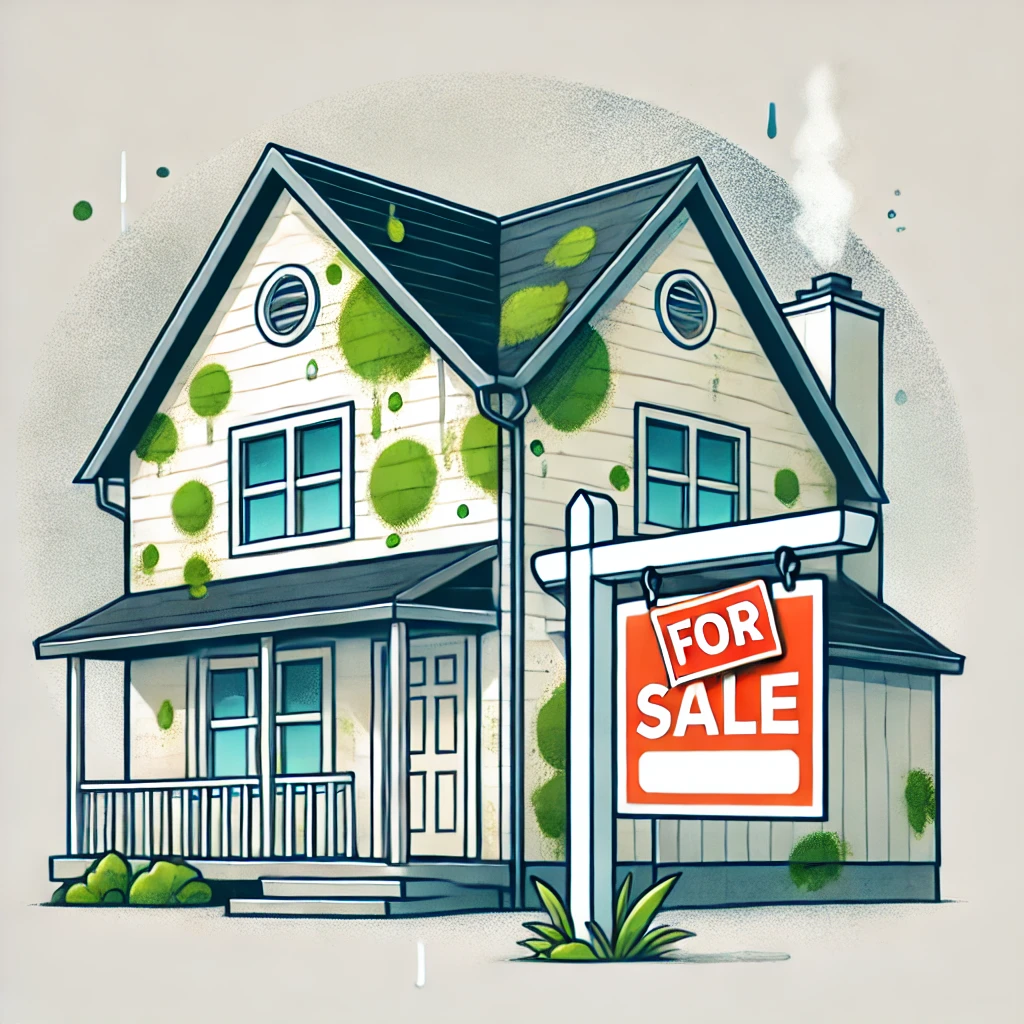What To Know About Mold When Buying A Home
Buying a home is one of the biggest investments you'll make in your life, so it’s essential to consider all factors that could impact your long-term health and finances. One of the critical issues that many homebuyers face is mold. If left untreated, mold can cause significant property damage, health problems, and costly repairs. Here's what you need to know about mold when buying a home, based on frequently asked questions and concerns from homebuyers.

Should Mold Be a Deal Breaker?
Mold doesn’t always have to be a deal breaker, but it depends on the severity of the issue. If the mold problem is minor and contained (such as on window sills or in small areas of a bathroom), it might be easily remediated. However, if the mold is widespread, especially in structural areas like behind drywall or in the basement, it could indicate a more serious problem like water damage or poor ventilation that may require expensive repairs.
How Bad Does Mold Have to Be to Condemn a House?
In extreme cases, mold can make a home uninhabitable, especially if it's widespread and caused by severe moisture problems. If mold has affected the home’s structural integrity or if it's a type of mold like Stachybotrys chartarum (black mold), it can pose serious health risks. Some homes may even be condemned if the damage is extensive and unresolved, making remediation impractical or too costly. A thorough mold inspection can reveal how severe the problem is and whether it can be addressed within your budget.
Is Mold a Common Issue in Homes?
Yes, mold is quite common, especially in homes with high humidity, leaks, or water damage. Even homes that have been vacant for a period may develop mold if there is untreated moisture. That’s why it’s critical to get a professional mold inspection during the home-buying process, even if the property looks clean. Mold can hide behind walls, under floors, or in HVAC systems.
Mold Considerations When Buying a New Home
When looking at new homes, even newly constructed properties can have mold issues if they were built with improperly dried materials or if they experience water leaks during the building process. Always conduct a home inspection, regardless of whether the house is new or old, to catch potential problems early.
When to Walk Away from a Home with Mold
There are situations when mold is severe enough to walk away from a purchase. If the mold problem has been ongoing and there's a history of water intrusion that hasn’t been properly addressed, you may be taking on too much risk. Mold remediation can cost anywhere from a few hundred dollars for minor cases to tens of thousands if the problem is widespread or structural. Additionally, homes that have suffered significant mold damage may have long-term issues with air quality, even after remediation.
Can You Get a Mortgage on a House with Mold?
Securing a mortgage on a house with mold may be more challenging, as lenders often view mold as a risk to the home's value. Some lenders may require you to resolve the mold issue before they approve financing, or they may offer only a reduced amount until the home is deemed safe. Getting a professional mold inspection and remediation plan can help reassure the lender that the problem will be fixed.
Should I Buy a House That Had Mold Remediation?
A house that has undergone mold remediation can still be a good purchase, provided that the remediation was handled professionally and there is documentation to prove it. Always ask for detailed reports, including any lab results or air quality tests conducted after the remediation, to ensure that the issue has been fully resolved and won’t recur. It's also wise to have an independent inspector check the house to confirm that no further mold problems exist.
Can Mold Follow You to a New House?
If your belongings were exposed to significant mold in a previous home, there is a chance that mold spores could travel with you to a new house, especially on porous materials like furniture, books, or textiles. It’s advisable to have mold-infested items professionally cleaned or, in some cases, discarded to prevent contamination in your new home.
Will a Bank Finance a House with Mold?
Banks may finance a house with mold, but there are often additional hurdles to clear. The extent of the mold problem and the cost of remediation will influence the bank's decision. If the mold is a minor issue, you may still be able to secure financing, but for more significant problems, the bank might require remediation before closing or offer a lower loan amount.
Conclusion
Mold in a home doesn't necessarily mean you should walk away, but it’s important to approach the situation carefully. A mold inspection is an essential part of the home-buying process, and knowing the extent of the issue will help you make an informed decision. If the mold problem is manageable, it may be worth proceeding with the purchase, but in cases of extensive damage or hidden issues, it could be best to reconsider.
Always prioritize your health and safety, and ensure you have the resources to address any mold problems effectively before finalizing your home purchase.